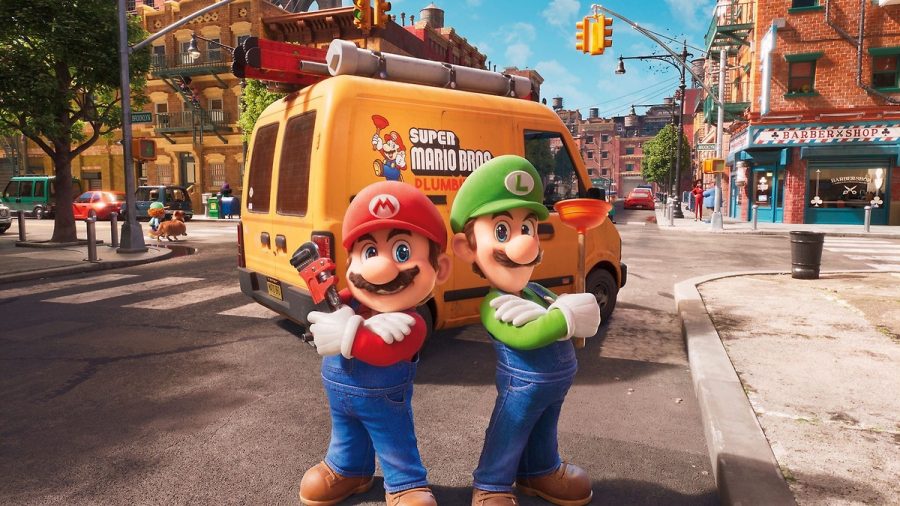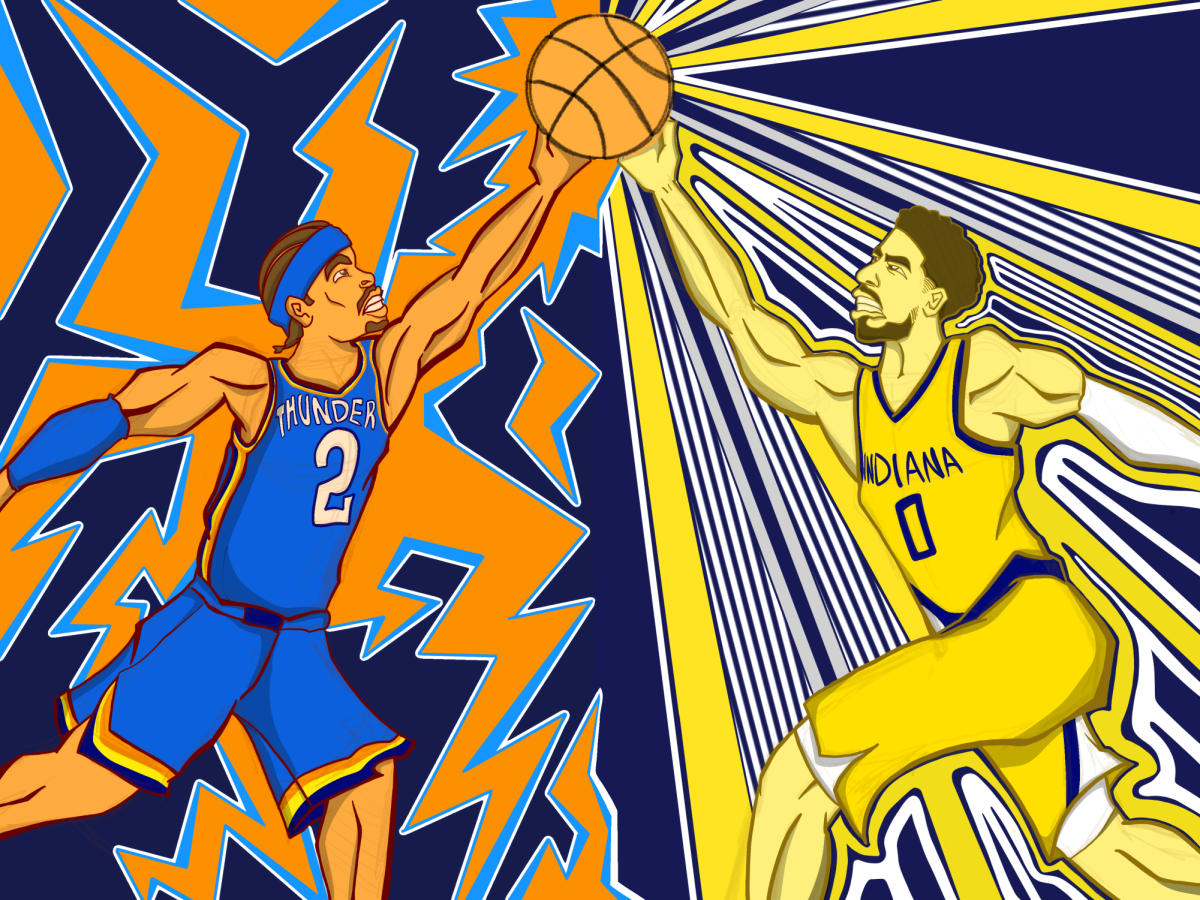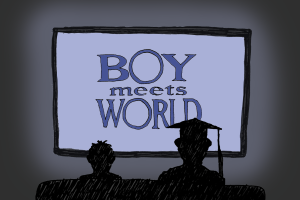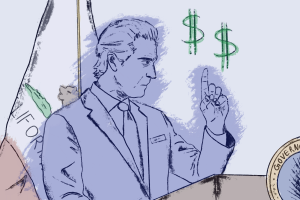“The Super Mario Bros. Movie” Review: Video Game Movies Deserve Better
Apr 16, 2023
It’s a me, the disappointment of the family!
SPOILER WARNING
In my time writing for The UCSD Guardian, I have written two articles about Sonic the Hedgehog: reviews for both “Sonic the Hedgehog” 1 and 2 — unfortunately, I will be long gone from the newspaper by the time the third film rolls around, rendering me unable to complete the most awaited trilogy since the original “Star Wars” movies. However, in my article about the first film, I wrote the following:
“While I never got to experience the height of Sonic’s popularity, I got to experience part of it through my older cousin. We played the games and watched the movie [the 1996 version] together. Even with my exposure to Sonic from my cousin, I remained loyal to the Italian plumber, Mario.”
Even in an article about Sonic the Hedgehog, Mario from the beloved Nintendo franchise still made its way into the article. It’s almost as if the two are inseparable. Once bitter rivals, pitted against each other as the console wars between Nintendo and Sega waged, they’re almost like close friends now — appearing together in multiple games, most prominently the “Mario & Sonic at the Olympic Games” series.
Thus, my dear reader, this long-winded introduction is to say that “The Super Mario Bros. Movie” shall be taking the place of “Sonic the Hedgehog 3” as the honorary — or dishonorary — third entry in my video game movie trilogy. If now friends, then Mario is the equivalent of the drunken friend who ruins the night for the much more sober Sonic.
First, let me address the elephant — or should I say, goomba — in the room: Chris Pratt. People were very critical of Pratt when it was announced that he would be the voice of Mario. There’s even some recent news going around that Pratt’s original Mario voice was supposed to be closer to Tony Soprano. However, I am here to say that, putting aside what you and I may think of Chris Pratt — I didn’t want him because I strongly hold that some characters should just be voiced by real voice actors, kind of like how Tails was voiced by Colleen O’Shaughnessy: he did … fine. He was serviceable in this movie. Once you induce yourself into the enter a nostalgia coma and inhale enough copium, you’ll forget that Pratt even voices Mario — although, I will still hold that the French dub of the movie has the best “WA HOO” (which is probably the result of the project being given to Illumination’s Paris division). However, my only real criticism about Pratt’s performance which bugged me every time it happened was when he would say “Mamma Mia.” Every time, it was in slow motion and typically in the middle of some action scene as Mario avoids some danger.
While on the topic of voice acting, those not named Jack Black also did a serviceable job, but no one really stood out. Now, for the one person in the cast actually named Jack Black, I gotta give credit where credit is due and make it double. Jack Black was the clear choice for a character like Bowser, especially given Black’s ability to switch from the serious big bad villain to a bumbling villain at the drop of a hat.
While on the topic of Bowser, I enjoyed the fact that he is simply evil for the sake of being evil. I appreciate that Nintendo and Illumination kept his motivations simple: ruling the world and marrying Peach. However, in terms of story and motivations, Bowser is the only redeeming quality of this movie.
Before I touch upon the shortcomings of the movie, I want to discuss why on a surface level and in a first viewing, the film can be considered good.
To, again, take a piece from one of my Sonic articles that I think best describes this film: “one of the reasons why I enjoyed this movie was because the people who made it understood the core audience and what they wanted to see, while still appealing to the average child and adult.”
At a surface level, this movie is everything a hardcore Mario fan would want. It has the music, the Nintendo easter eggs, and all their favorite characters in a brand new medium. It’s clear that this movie was made by people who both know a lot about the franchise and appreciate it to a great degree. This alone is evident through the animation which, in my opinion, is one of Illumination’s best animated works to date. Containing several set pieces that are meant to mimic the side scrolling platform of the original game, the animation is enough to keep the attention of all audience members for its entire runtime. Again, on a surface level, this film appeals to both the “core audience” and the “average child and adult.”
However, if you peel back all the nostalgia, all the color, all the big names that Nintendo has developed over the course of 40 years, what are you left with? Under a simple plot about stopping Bowser from taking over the Mushroom Kingdom (with plot holes of its own), you’re left with a half-baked story about sons seeking the acceptance of their father that expects the viewer to overlook plot holes because “It’s a me, Mario!”
In the beginning of the film, Mario and Luigi (Charlie Day) leave their corporate plumbing job to start their own business, much to their father and family’s dismay, disparaging it as nothing but a dream, with the only person giving a fraction of thought being their mother. It’s clear that their father, and most of the family, could care less about Mario and Luigi. Yet, although we never see the family again, by the end of the movie, after saving all of New York (oh yeah, the whole cast ends up in Brooklyn by the end of the movie), his father tells the duo that he is proud of them?! Like, excuse me? Where have you been?
Another character that undergoes a similar arc to Mario and Luigi is Donkey Kong (Seth Rogan), heir to Cranky Kong (Fred Armisen); he believes that his father sees him as unbecoming to the throne. This is despite the fact that nowhere in the movie is it shown that Cranky Kong really disproves of his son. The only argument against this is the fact that Cranky Kong told DK to stop showboating before an important fight that would determine if their entire kingdom’s army would join forces with Princess Peach (Anya Taylor-Joy) to stop Bowser.
This series of egregious plot holes is present throughout the movie. First, how did the green pipe that transported Mario and Luigi to the new world end up below New York in their sewer system? If the pipe they took led them to the fantasy world of the movie, how is it that no one from either the Mushroom Kingdom or Bowser’s darklands have ended up in the human world before? Especially given the fact that Bowser’s motive is to take over everything? Speaking of the pipe, why did neither Mario or Luigi attempt to go back into the pipe to see if it would take them back to where they came from? This is even more glaring by the end of the movie because Mario attempts to save the Mushroom Kingdom by disposing of a giant bullet bill by leading it into the green pipe that Mario originally came from. He seems to understand that going through the pipe would take the bullet bill somewhere, so why didn’t he think of that earlier?
Speaking of thinking, it’s as if the scriptwriters didn’t really think about other details that drive the plot of the film. For example, the main MacGuffin of the film is the famous Super Star powerup. Throughout the film it’s made out to be one of the most powerful power ups in all of the lands, and that both Princess Peach and Cranky Kong know about its existence and power. So, *“Whiplash’”s Terence Fletcher voice* WHY THE F— IS IT GUARDED BY THE SOFTEST FU—ING KINGDOM IN THE MOVIE? Also, throughout the movie, Bowser is fed information about the Mushroom Kingdom and their plans by an informant. Yet, the audience is never shown or even told who the informant is. We are simply supposed to take the scriptwriters’ word for it.
Upon my initial viewing, I fell in love with the movie, completely entranced by elements such as the platforming set pieces, the music, and the easter eggs. Yet, the more time I’ve had to marinate with this film, the more infuriated I’ve become. This movie gives Mario fans the fanservice they deserve with no actual substance to keep them around. While, and I say this unironically, the Sonic movies are not perfect, at least they attempt to tell a story, very simple stories, but at the very least, do not make fanservice their name of the game. Video game movies deserve better than this, and hopefully, the sequel hinted by the post-credit scene can use this entry as a jumping off point. Let’s see if this franchise has a 1up mushroom hidden somewhere.
Image courtesy of Letterboxd
















Lucky • Jul 7, 2023 at 12:00 pm
I have fond memories of playing Super Mario, but as my gaming preferences evolved, I found myself drawn to the immersive world of World of Warcraft (WoW). While Super Mario offered nostalgic charm, WoW provides a vast and dynamic gaming experience. Exploring the rich landscapes and engaging in epic quests within WoW has become my preferred gaming adventure. Additionally, the availability of cheap wow gold can enhance the gameplay experience, allowing me to unlock new possibilities and customize my character. It’s incredible how gaming has evolved, and WoW has captured my imagination in ways that Super Mario once did.